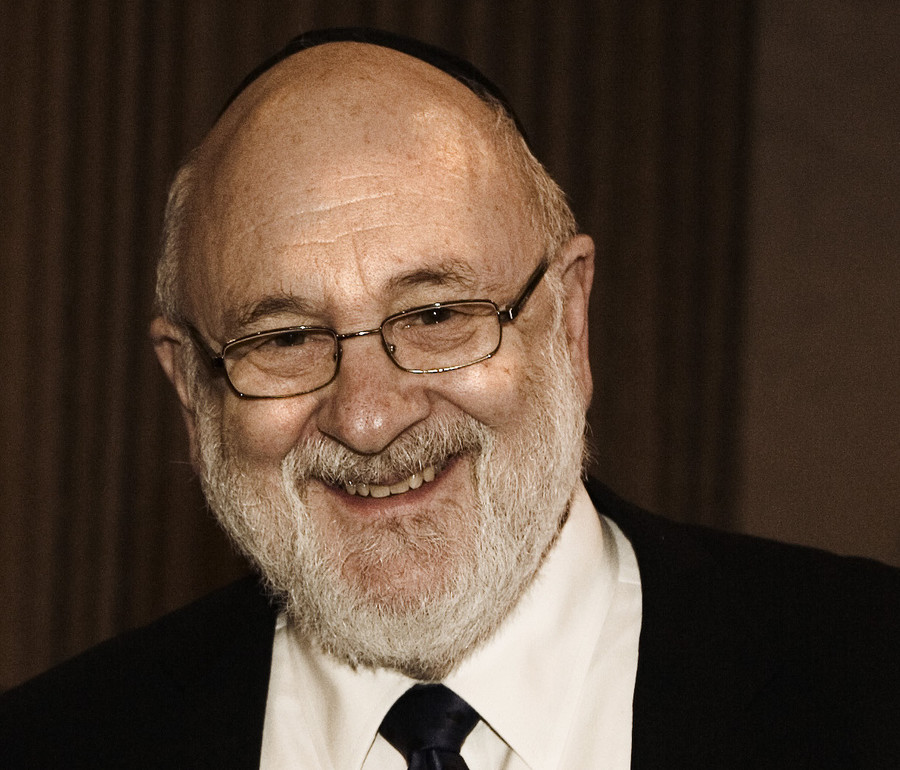Vayera’s lesson of hospitality before Heaven
He was an old man, frail, tired, and bereaved. News of Hitler’s advancing army preoccupied him, and he was overwhelmed, if not broken, by the requests for advice he was receiving from hundreds of troubled Jews. Indeed, he may have already sensed that he had only months to live.
His name was Rabbi Chaim Ozer Grodzinski, and he was universally acknowledged to be the world’s leading Talmudic scholar. He lived in the city of Vilna, and the time was late 1939.
The person who told me the story was then a young man, barely twenty years old. He was himself a refugee, along with his fellow yeshiva students. He found himself in the neighborhood of Rabbi Grodzinski’s residence during the Sukkot holiday. He decided he would attempt to visit the Rabbi, although he knew that he might not be granted an audience.
How surprised he was to find the Rabbi alone, studying and writing. The rabbi welcomed him, inquired about his welfare, and invited the visitor to join him in a light lunch. The Rabbi told him that because of his age and physical weakness he deemed himself to be exempt from the requirement to eat in the sukkah. He considered himself a mitzta’er, one whose physical discomfort freed him from the sukkah requirement.
“But you,” the Rabbi continued, “are a young man and reasonably healthy. Therefore, take this plate of food down to the sukkah in the courtyard, and excuse me for not being able to join you.”
The young man did so, but soon, sitting in the sukkah by himself, was surprised to hear the old Rabbi slowly making his way down the many steps from his apartment to join him in the sukkah.
“You may wonder why I am joining you,” exclaimed the old Rabbi. “It is because although a mitzta’er, one who is in great discomfort, is exempt from the mitzvah of sukkah, he is not exempt from the mitzvah of hospitality, of hachnasat orchim.”
This anecdote underscores the importance of the mitzvah of hospitality and illustrates the fact that even great physical discomfort does not excuse a person from properly receiving and entertaining his guests.
Of course, the biblical basis for Rabbi Grodzinski teaching is to be found in this week’s Torah portion, Vayera. In the opening verses, we find that Abraham, despite the fact that he was recovering from his recent circumcision, exerts himself to welcome a small group of wayfarers and tends to their needs with exquisite care.
Abraham is our model for the important mitzvah of welcoming strangers and seeing to it that they are greeted hospitably.
The 17th century sage, Rabbi Isaiah Horowitz, known as the Shelah HaKadosh, points out that performance of this mitzvah helps us realize that we are all wanderers and merely transient guests in the Almighty’s world. We pray that He treats us hospitably during our sojourn in His world, and to earn such treatment, we are sensitive to the physical and emotional requirements of our own guests.
Our sages discovered an even deeper dimension to Abraham’s hospitality. The third verse in our Torah portion reads, “And he said, ‘My lord, if I have found favor in your eyes, pass not away from your servant.’” The simple reading of this verse is that Abraham is speaking to one of his guests whom he refers to as “my lord.”
Another reading, a startlingly provocative one, suggests that Abraham is addressing the Almighty Himself, and that the word “lord” should be spelled with an uppercase “L”. According to this interpretation, Abraham is asking that the L-rd Himself excuse him and wait for him while he tends to his guests. “Welcoming one’s guests is a bigger mitzvah then welcoming the Shechinah, the Divine Presence.” That is the lesson which the Talmud derives from the story which opens our parsha this week.
Commentaries throughout the ages have questioned whether it is indeed legitimate for one to abandon his rendezvous with G-d in order to attend to the needs of mere human beings. Is it right for one to interrupt his dialogue with the Almighty just to perform the mitzvah of hospitality? There is a rich literature of responses to this question.
One approach is to understand that it is not so much that hospitality trumps the experience of communication with the Shechinah. Rather, it is that the way to earn such an exalted spiritual experience is by practicing hospitality.
One does not achieve a spiritual experience through meditation and prayer. One achieves true spirituality by painstakingly attending to the needs of others. This is why we give some charity, perhaps even just a few pennies, prior to engaging in prayer. The Talmud suggests that in order to earn the right to address G-d in prayer, one must first demonstrate that he is not unaware of his obligations to his fellow. First alms, then prayer. First hospitality, and only then can one come into the Divine Presence.
How important it is that we learn the lesson of religious priorities. Never can we place our spiritual longings above our obligations to our fellow human beings. This is the lesson taught to us so long ago by our forefather, Abraham, when he turned away from G-d in order to practice the mitzvah of hachnasat orchim.

 49.0°,
Fair
49.0°,
Fair 





